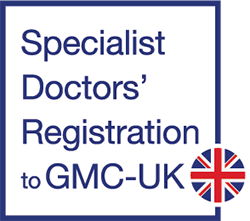NHS stands for the National Health Service, which provides healthcare to all UK citizens based on their medical care needs rather than ability to pay. The NHS is the UK’s publicly funded health system and delivers a wide-ranging service available to all, regardless of gender, race, disability, age, sexual orientation, religion or belief.
The NHS was founded in 1948 as one of the greatest social reforms after the Second World War, and Aneurin Bevan was the key figure in its founding.
The Department of Health (or Ministry of Health) is responsible for NHS and social care delivery. Scotland, Wales and Northern Ireland operate their local NHS services separately.
Major reforms were introduced to the NHS in 2012 with the “Health and Social Care Act 2012”, which divided the NHS into a number of organizations working at both the national and local levels. This eliminated previous strategic health authorities and primary care trusts and allowed GPs to manage NHS budgets in their local area through their commissioning groups.
The NHS provides healthcare for all UK citizens based on their need for healthcare rather than their ability to pay for it.
The NHS Commissioning Board, which has many regional offices and many local offices in England, oversees budgetary spending by the 207 Clinical Groups (CCG) at local level. They are responsible for the commissioning of health services for their respective regions and control almost two-thirds of the NHS budget.
There are several trust that functioning in the UK.
- Acute trusts: There are 135 acute trusts, managing hospitals to make sure they provide high-quality healthcare and spend money efficiently.
- Hospital trusts and foundation trusts: NHS hospital trusts oversee NHS hospitals and specialist care centres. There are also foundation trusts, run by local managers, staff and members of the public, and tailored to local needs.
- Ambulance trusts: These provide emergency access to health care. There are 10 ambulance trusts in England. Scotland, Wales and Northern Ireland have separate ambulance services. Ambulance trusts also provide transport to get patients to hospital for treatment.
- Mental health trusts: There are 54 mental health trusts (including 42 foundation trusts) which provide health and social care services for people with mental health problems. Services include: Counselling and psychological therapies, Community and family support, Health screening. They also provide specialist care for people with severe mental health conditions such as severe anxiety problems or psychotic illness.
Special health authorities
Special health authorities within the NHS provide a health service to the whole of England or the UK, not just to a local area. They include the following;
- Medicines, Healthcare Products and Regulatory Agency (MHRA) regulates medicines and medical devices in the UK. It ensures that medicines, healthcare products and medical equipment meet standards of safety, quality, performance and effectiveness and are used safely. The MRHA grants licences for medicines. It is illegal for companies to sell medicines unless they have a licence.
- National Institute for Health and Care Excellence (NICE) provides national guidance on how to promote good health as well as the prevention and treatment of ill health. It sets guidelines on whether or not certain treatments are available on the NHS in England and Wales.
- NHS Improvement (NHSI) is responsible for overseeing foundation trusts and NHS trusts, as well as independent providers that provide NHS-funded care. It supports providers to give patients consistently safe, high quality, compassionate care within local health systems that are financially sustainable.
- Public Health England (PHE) was established on 1 April 2013 to bring together public health specialists from more than 70 organisations into a single public health service. Public Health England is an executive agency of the Department of Health and Social Care, and a distinct organisation with operational autonomy, providing government, local government, the NHS, Parliament, industry and the public with evidence-based professional, scientific expertise and support.





